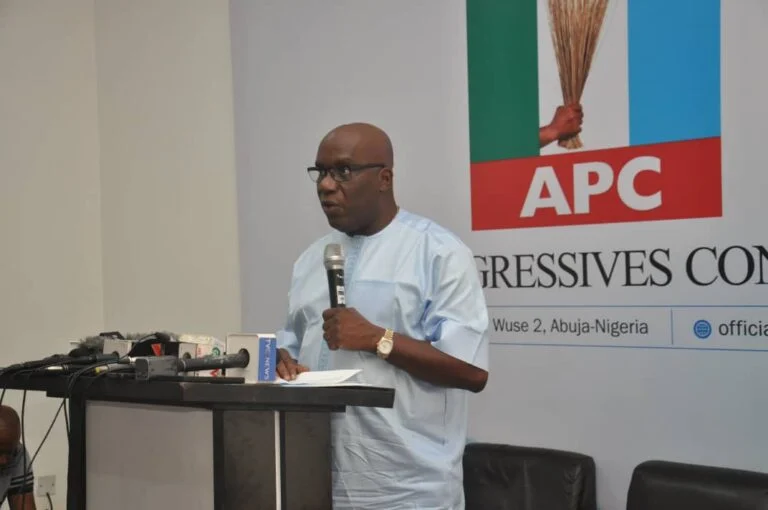Godwin Emefiele, governor of the Central Bank of Nigeria (CBN), says the apex bank’s directive to financial institutions on cryptocurrency transactions, is in the best interest of depositors and the country’s financial system.
Emefiele said this on Tuesday while briefing a joint senate committee on banking, insurance, and other financial institutions; ICT and cybercrime; and capital market.
On February 5, CBN had directed all banks in Nigeria to close accounts of persons or entities involved in cryptocurrency transactions within their systems.
Consequently, on February 11, the senate invited Emefiele and Lamido Yuguda, director-general of the Security and Exchange Commission (SEC), to brief the committee on opportunities and threats of cryptocurrency on Nigeria’s economy and security.
Emefiele said given the fact that cryptocurrencies were issued by unregulated and unlicensed entities made it contrary to the mandate of the bank, as enshrined in the CBN Act (2007) declaring the bank as the issuer of legal tender in Nigeria.
He declared that “Cryptocurrency is not legitimate money” because it is not created or backed by any Central Bank.
“Let me state that this decision is in the best interest of every well-meaning Nigerian, who has nothing to hide and is happy to have traceable and transparent dealings in our financial system,” Emefiele said.
“Cryptocurrency is used to describe the activities of traders in an electronic dark world where transactions are extremely opaque, not visible and not transparent. These are people who deal in transactions that do not want to be trailed.”
He said CBN knows that a continuation of the transaction significantly threatens the safety and soundness of Nigeria’s collection system.
“CBN has a major and primary responsibility as a primary regulator to protect activities of actors, bank stakeholders, and uninformed actors in the financial system from other actors who may wish to take advantage of their lack or limited knowledge to rip off the uninformed.
“And that is the reason we have banned all banks to desist from operating accounts for cryptocurrency dealers in Nigeria.
“We have also asked our banking supervision and payment system and our IT department to conduct an investigation into the activities of forex exchanges and their major players.
“The result of the investigation will lead to a better understanding of their activities and will be unveiled to all.”
He explained that cryptocurrency has been used to facilitate scams, money laundering, payment of ransom for kidnapping, and finance for terror in different parts of the world.
Emefiele further stressed that the ultimate goal of CBN was to do all within its regulatory powers to educate Nigerians on emerging financial risks and protect the country’s financial system from activities of currency speculators, money launderers, and international fraudsters.
Speaking at the hearing, Lamido Yuguda, director-general of the Security and Exchange Commission (SEC), clarified that there was no policy contradiction between the CBN directive and the pronouncements made by the SEC on the subject of cryptocurrencies in Nigeria.
He explained that SEC made its pronouncement at the time to provide regulatory certainty within the digital asset space due to the growing volume of reported flaws.

 BIG STORY3 days ago
BIG STORY3 days ago
 BIG STORY4 days ago
BIG STORY4 days ago
 BIG STORY4 days ago
BIG STORY4 days ago
 BIG STORY4 days ago
BIG STORY4 days ago
 BIG STORY2 days ago
BIG STORY2 days ago
 BIG STORY3 days ago
BIG STORY3 days ago
 BIG STORY3 days ago
BIG STORY3 days ago
 BIG STORY4 days ago
BIG STORY4 days ago
































